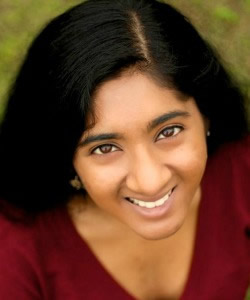Walking shyly into the back room of the Potter’s House, I had no idea what to expect from my first iftar. Interfaith work was certainly my bread and butter, and though I prayed at Jum’ah almost every Friday with the Muslim community at Georgetown, I had never been invited to an iftar to celebrate the end of the fast during Ramadan. It had been labelled an interfaith event, but would I stick out as the only non-Muslim? Would I stick out as perhaps the only person of a non-Abrahamic faith? Would I stick out as the only one who hadn’t fasted that day? Would I stick out as the only one who didn’t know what to do at an iftar?
Anxious about fitting into a new context and a new community, I trailed behind the friend I had invited to come with me. Taking most of my cues from her, a charismatic and devout Muslim woman, I removed my shoes at the wall and greeted Ms. Lauren Schreiber and Ms. Cassandra Lawrence. Cheerful and welcoming women, they enthusiastically introduced themselves and chatted with us for a few minutes. Having calmed my nerves, I realized that the room was full of friendly people like me who either wanted to know what an iftar was about or wanted to share their iftar experiences with other members of the DMV community.
I sat down on the haphazardly spread picnic blankets and began talking to two other women: one was a Muslim woman who was telling us about her involvement in the Muslim Writers Collective, and one was a Christian woman who was—much like me—attending an iftar for the first time and thinking about the similarities and differences between fasting in each faith tradition. The conversation was easy, flowing, and fulfilling. Sitting on those picnic blankets, I found kindred spirits: people who were interesting in simply sharing their faith and learning about others’ beliefs.
Ms. Schreiber began the program by explaining how the annual interfaith iftar had come about: inspired by a loving act of interfaith activism during the armed rallies outside an Arizona mosque, Ms. Schreiber felt moved to hold an iftar in D.C. to put her interfaith passion in action. A man named Osa, co-founder of Sanctuaries, then sang about hunger and how morals and perspectives changed in the face of hunger. His message, or at least one of his messages, came through loud and clear: we should not judge people, because we do not know their circumstances. This message he shared, through a lens of hunger, was woven into the conversations that I shared with strangers during the iftar. I met Muslims who shared stories of microaggressions and passive stereotypes, such as the incredulous looks that a hijabi receives when out on a run, and I met others who shared stories of opening their minds to communities that were different from them. I witnessed Muslims from different traditions coming together and sharing similar experiences, while learning about differences in Islamic practice. I began to understand through those conversations that interfaith in this context was both intra-Islamic and interreligious, a seamless exchange of beliefs and practices.
As we all gathered in that room, Muslims and non-Muslims, old and young, men and women, people from all ethnic and racial backgrounds, I felt at home. I felt comfortable. Here was a community of strangers that had simultaneously shared their customs with me while welcoming me in by wanting to know why I cared about interfaith work, what my tradition was about, and what kind of person I was. What I learned by participating in my first iftar, this beautiful interfaith space, was that interfaith work did not necessarily have to be a formal discussion, a facilitated dialogue, an organized rally, or an educational presentation. Interfaith work as I experienced it at the iftar was simply being and being open. Interfaith is opening your mind, whether or not you are an activist. Interfaith is listening and learning. Interfaith is loving your neighbor and welcoming the stranger.

